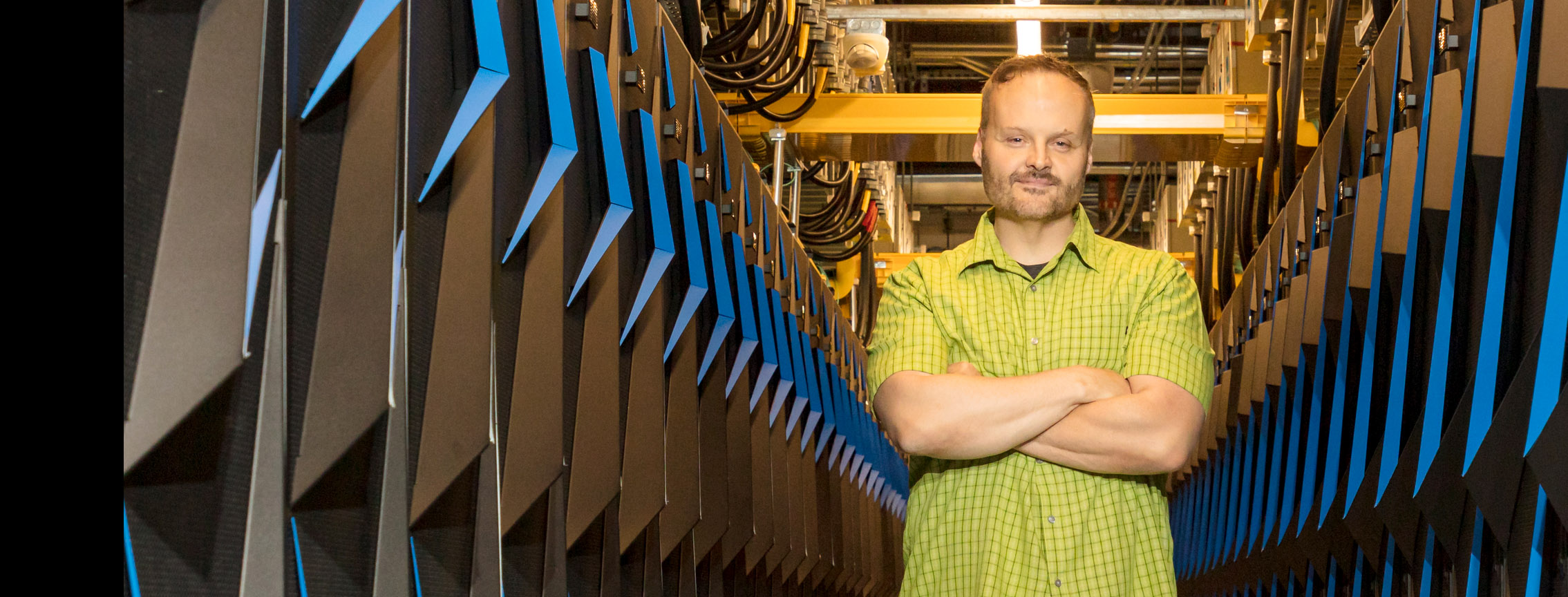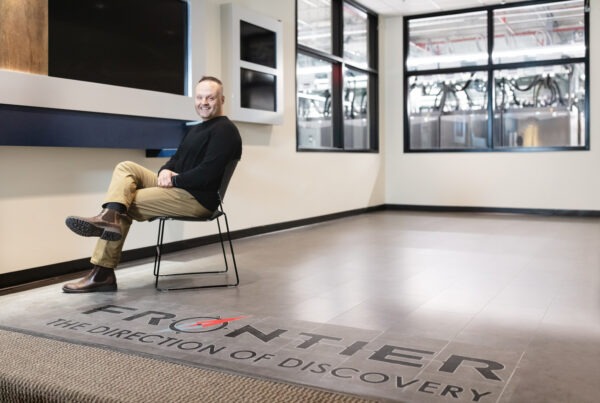Bronson Messer—a computational astrophysicist, Distinguished Scientist in the Scientific Computing and Theoretical Physics groups at the US Department of Energy’s (DOE’s) Oak Ridge National Laboratory (ORNL), and a former Jeopardy! champion—has been named the new director of science for the Oak Ridge Leadership Computing Facility (OLCF).
As director of science, Messer will be responsible for the scientific outcomes of the OLCF’s user programs. The OLCF, a DOE Office of Science User Facility at ORNL, was established in 1992 with the mission to accelerate scientific discovery and engineering progress by providing world-leading computational and data capabilities as well as high-performance computing expertise. Messer will help set the OLCF’s strategy for pursuing such open-science research and facilitating the DOE’s scientific missions.
“Ultimately, we’re responsible for implementing systems, policies, platforms—the whole computational ecosystem that will actually allow people to get science done,” Messer said. “At the OLCF, this can mean science that’s primarily data-driven or uses AI or uses large-scale simulation of big physical systems. I want to make sure that they’re all done at the requisite level of quality.”
Messer’s predecessor as OLCF director of science, Jack Wells, became director of the newly formed Office of Strategic Planning and Performance Management at ORNL on January 1.
“We’re very happy to welcome Bronson into this role, following in Jack Wells’ footsteps,” said Georgia Tourassi, director of the National Center for Computational Sciences (NCCS) at ORNL. “During his tenure as director of science, Jack provided outstanding service while expanding OLCF’s reach across many scientific domains. His organizational commitment and inclusive approach to diverse computational research communities have been unparalleled.”
The director of science is the principal point of contact for OLCF users who are scientists from academic research institutions, industrial labs, or other federal agencies. Messer pledges to continue nurturing the sense of trust among these researchers “that’s been built upon them knowing we have their best interests at heart,” he said. Messer aims to further cultivate this confidence by marshalling the OLCF’s HPC experts to assist users in fully utilizing the facility’s supercomputer assets, helping triage problems on the backend to ensure their codes run smoothly, and making careful decisions that balance users’ needs with the facility’s resources.
“Our mission is to field true leadership-scale compute capabilities, but they’re finite. In a world where you have finite resources, invariably the OLCF is going to have to make judgments,” Messer said. “I think it’s important that everybody who’s a user, or a prospective user of the facility, has trust in those judgements. The way to instill that trust is to make it clear to them that we understand what they’re doing, we understand how they do it, and we also understand what would get in their way. And I think the director of science has to help lead the charge on all of those fronts.”
Messer got his first job at ORNL as a 16-year-old freshman at the University of Tennessee (UT) during the summer of 1987. He was responsible for operating an ellipsometer to measure the polarization of light coming off materials, such as rubies, intended for use in optics; it was driven by an Apple II computer with a program written in Basic. Since then, computers (much more powerful ones) have been ever-present in his education and work as an astrophysicist, including the Cray T3E at Goddard Space Flight Center’s summer institute or the Intel Paragon XP/S 150 at ORNL where he worked as a graduate research assistant in the late ’90s.
After receiving his PhD in physics from UT in 2000, Messer became a postdoctoral research associate at ORNL, and then in 2003 joined the University of Chicago as a research associate at the Flash Center for Computational Science. Finally, in 2005, he returned to ORNL as an R&D associate and has held numerous titles since then, including acting director of science for the NCCS and acting group leader for the lab’s Scientific Computing Group.
As a scientist, Messer has primarily focused on the explosion mechanisms and phenomenology of supernovae (both thermonuclear and core-collapse), especially neutrino transport and signatures, dense matter physics, and the details of turbulent nuclear combustion. He is currently the DOE Office of Advanced Scientific Computing Research’s principal investigator for the Scientific Discovery through Advanced Computing “Toward Exascale Astrophysics of Mergers and Supernovae” project studying the phenomenology and observational consequences of core-collapse supernovae. Meanwhile, he’s also contributing to the Exascale Computing Project’s ExaStar program, which is building the next-generation code for explosive stellar astrophysics in a variety of settings, including core-collapse supernovae and neutron star mergers.
Even as he undertakes his new position as OLCF director of science, Messer said he will continue his own research—with some help.
“The good news is I have several students and postdocs working with me currently, and it’s already to the point where I try to mentor them as best I can and they do a lot of the hard work,” Messer said.
Although he’ll be immersed in managing OLCF user programs and their scientific outcomes, Messer said the director of science position ultimately reflects on his basic love of science. Understanding different scientific domains and how their research is conducted has always fascinated him, he said.
“I admit freely to being a bit of a science groupie—always have, that’s why I’m a scientist myself—and I enjoy the inside story about how the science actually gets done,” Messer said. “This is a great job because you get to learn a lot of science really, really fast.”
UT-Battelle LLC manages Oak Ridge National Laboratory for DOE’s Office of Science, the single largest supporter of basic research in the physical sciences in the United States. DOE’s Office of Science is working to address some of the most pressing challenges of our time. For more information, visit https://energy.gov/science.






